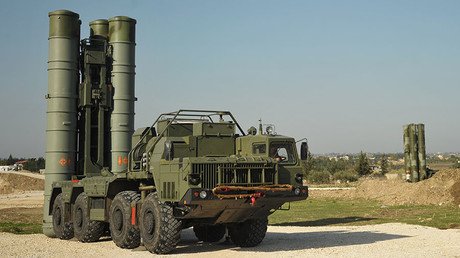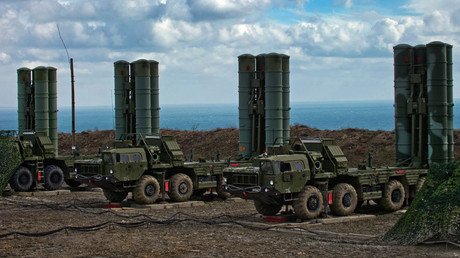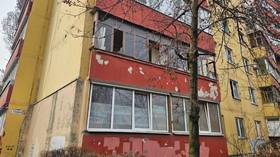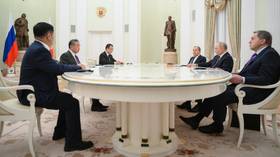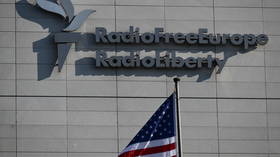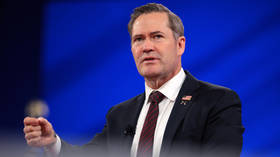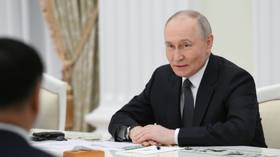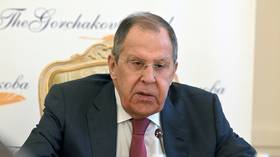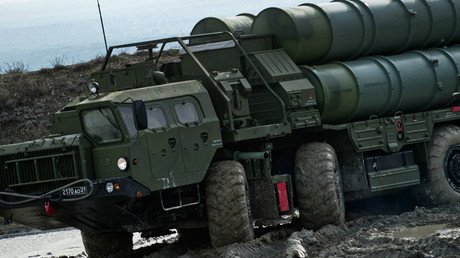Russia might sell S-400 systems to US if Americans feel insecure
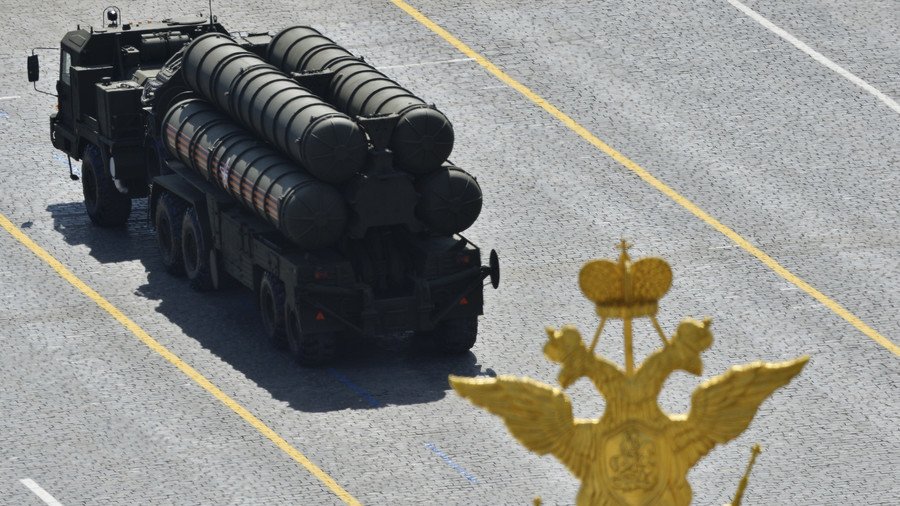
The head of Russia’s strategic defense industry corporation Rostec says Moscow is ready to sell S-400 air defense systems to any nation that feels insecure and wants to seal its airspace, including the US if it wants to.
Just before the end of the year, Moscow agreed to supply S-400 surface-to-air missile batteries to Ankara, making Turkey the first NATO member state that will integrate Russian technology into the North Atlantic defense structure once the $2.5 billion order is delivered. On Wednesday, Sergey Chemezov, head of the Russian state conglomerate Rostec, extended the offer to purchase S-400 Triumf, or the SA-21 Growler as it is known by NATO, to the Pentagon.
“The S-400 is not an offensive system; it is a defensive system. We can sell it to Americans if they want to,” Chemizov told the Wall Street Journal (WSJ) when asked about the strategic reasoning behind the S-400 sale to Turkey.
The S-400, developed by Russia’s Almaz Central Design Bureau, has been in service with the Russian Armed Forces since 2007. The mobile surface-to-air missile system which uses four projectiles can strike down targets 40-400 km away. The deployment of S-400 batteries to Syria served as one of the pillars to the successful Russian anti-Islamic State (IS, formerly ISIS/ISIL) campaign.
While the Almaz Bureau is currently developing S-500 systems, foreign orders to purchase the S-400 have skyrocketed. Besides China and Turkey, who are awaiting order deliveries, India, Qatar and Saudi Arabia are currently negotiating to purchase the Russian military hardware.
The growing demand can be attributed to the high reliability and long history of the S missile defense system family. The S-200, designed by Almaz in the 1960s, still serves many nations today. On Saturday, a Syrian S-200 Vega medium-to-high altitude surface-to-air missile was allegedly used to intercept an Israeli F-16.
“When the political situation in the world is tense, every country tries to ensure its security and, of course, to ensure the safety of its airspace. That is why the demand for missile defense systems is high,” Chemezov told WSJ in an interview published Saturday. “Many countries would like to buy such systems, and we have many orders. I am not saying that we do not compete with Americans — of course we do. But according to my information, our system is better.”
The direct competitor of S-400 is American Patriot surface-to-air missile system. But the Russian system can detect airborne targets at a range of 600 km, and hit them at 400 km, whereas for the Patriot those ranges are 180 km and 130 km respectively. Both have a minimum range, too, after which a target can no longer be intercepted. For the S-400 it is two km against the Patriot’s 10 km. The speed of the target is another key factor. The S-400 can hit a mark that moves at up to 17,280 km/h, while the Patriot can only manage 7,920 km/h. Furthermore, while both systems have similar reaction speeds of less than 10 seconds, the S-400 is faster to deploy, going from travel to combat mode in about five minutes, whereas the Patriot takes 25 minutes.
With that in mind, Chemezov somewhat ironically offered the US some Russian-engineered protection for its skies. “There is really no issue from the strategic point of view. And I don’t see any problems for Russia from the point of view of security,” he noted.
“On the contrary, if a country is capable of ensuring the safety of its airspace, it will feel more secure,” Chemezov said. “And those who might have intentions to attack this country will think twice.”
